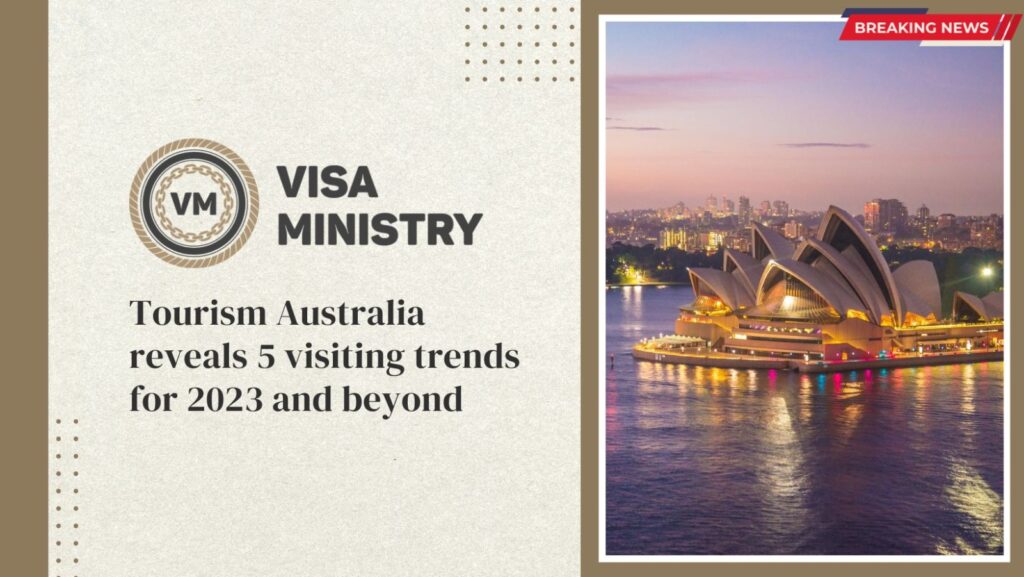According to Tourism Australia managing director Phillipa Harrison, travellers are giving sustainability a high priority, taking work breaks, and continually planning their next vacation.
On the opening day of the Australian Tourism Exchange on the Gold Coast, she identified eight “emerging trends” for the year. Several of these highlighted the novel travel patterns that emerged in the wake of the pandemic.
Harrison said that they were able to determine how much money tourists were prepared to spend on international travel based on a mix of market research and trend predictions.
The managing director of Tourism Australia is Phillipa Harrison. Image credit: Tourism Australia
The managing director of Tourism Australia is Phillipa Harrison. Picture from Tourism Australia
1. Premium and luxury are strongly returning.
Harrison said that the premium and luxury tourism business was “doing incredibly well” in Australia, “smashing” pre-pandemic figures, despite the global crisis in the cost of living. According to Harrison, high-end tourist businesses and services are really driving the industry’s revival.
2. Sustainability is now crucial
75% of people want their trip to leave a small carbon imprint, and a third of this group won’t travel if they can’t do it carbon-free, according to research from a 2022 Tourism Australia study, Harrison said.
“It’s not just a nice to have anymore.”
3. There is increasing interest in outdoor activities, wellbeing, and wellness.
Travel that prioritised the outdoors, adventure, and wellness had already begun to gain appeal before the epidemic. According to Harrison, there is a new degree of increase in the need for these kinds of experiences.
Similar feelings have been expressed by other nations worldwide as a result of the pandemic’s influence on a growing consciousness of travel that promotes good physical and mental health.
Advertise with NZME.
4. More individuals are experimenting with becoming a digital nomad.
When working from home was the norm, some people seized the opportunity to work while on vacation, a practise known as a “workcation”.
Harrison claimed that this wasn’t just a fleeting fad but rather a brand-new manner that individuals are prolonging their vacation.
“Covid completely changed the way we worked, and we now see a huge opportunity for us because there are a lot more digital nomads than there were before.”
Harrison claimed that because tourists may work for a few days while travelling, “much, much longer stays” were being sought after by travel agencies. According to her, over 25% of tourists are seeking for journeys lasting four weeks or more.
5. Travel planning has undergone a major change
Harrison claimed that obtaining inspiration for and information on planned journeys had undergone another significant shift.
Nowadays, doing research involves more than simply browsing catalogues or visiting a business; it also involves often learning about and visiting new locations online and through social media.
Even if they aren’t aware of it, Harrison claimed that people are always doing what she dubbed “always-on discovery” on their devices when planning their vacation.
SOURCE: nzherald
